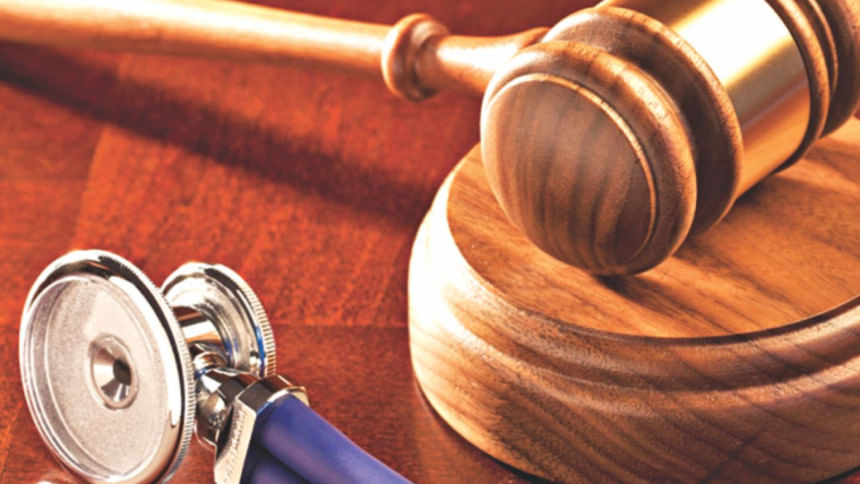Duty of care and medical negligence

Negligence means and includes careless state of mind which may amount to reckless or indifference, careless conduct without reference to any duty to take care and breach of legal duty to take care. Negligence amounts to tort: (a) when there is a legal duty to exercise due care; (b) breach of the duty; and (c) available consequential damages. Tortious liability of medical negligence is proved if all components of the three-part test of the preceding sentence are established on the balance of probabilities. Law imposes a duty on everyone to conform to a certain standard of conduct for protection of others. Specially, medical professionals are expected to work out and provide practical degree of skill and knowledge and also apply reasonable degree of care in treating patients. This is because; medical professionals are duty bound to protect life. Generally, the obligation of a medical practitioner emerges from the fact that he does something to a human being which is likely to cause physical harm unless it is done with proper care and skill.
The careless conduct of a medical professional may cause physical harm or financial loss to the patient. The extent of imposing liability for damage is of particular importance to the medical profession, because the law of tort provides compensation for injuries to person or property and for financial loss flowing from such damage. Any mature person of sound mind is entitled to claim for compensation provided he suffers damage due to medical negligence. This claim for personal injury may be made by any minor or person of unsound mind through next friend by invoking the provisions of Order 32 of the Code of Civil Procedure, 1908.
The proof of negligence remains the lynch pin to recover compensation. To succeed in an action for negligence against a doctor the plaintiff must prove (i) that the defendant was under a duty to take reasonable care towards the plaintiff to avoid the damage complained of or not to cause damage to the plaintiff by failure to take reasonable care; (ii) that there was a breach of that duty on the part of the defendant; and (iii) that breach of duty was the real cause of damage complained of and such damage was reasonable foreseeable.
The compensation paid for personal injuries is neither punishment nor reward. The principle on which damages for negligence are assessed is that they are to be considered as compensation for an injury sustained and not as punishment for a wrong inflicted. The determination of the amount of compensation is basically a net balance of the loss and gain to survivors or the dependants. The actual financial loss of each individual entitled to take legal action can only be determined by balancing, on the one hand, the loss to him of the future financial benefit, and, on the other, any pecuniary advantage which from whatever source comes to him by reason of the death.
The writer is an Advocate and Research Assistant (Law) at Bangladesh Institute of Law and International Affairs (BILIA).

 For all latest news, follow The Daily Star's Google News channel.
For all latest news, follow The Daily Star's Google News channel. 



Comments